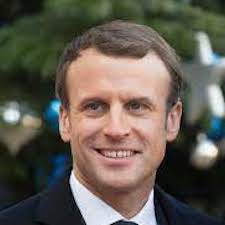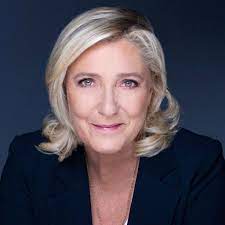Our Blog - French Presidential Election - Part 2
The first round of the presidential election is over and the results were very close to what the polls had been saying. The top 3 were Emmanuel Macron (27.85%), Marine Le Pen (23.15%), and Jean-Luc Mélenchon (21.95%). None of the other candidates got over around 7%. Turnout was also relatively low, with abstention at 26.31%.
The next round is in 2 weeks, with only the top 2 going forward. Technically, a French president could win office in a single round of voting if they were to get more than 50 percent of the vote in round 1. However, that hasn't happened since the two-round system was put into place.
I said that no president has ever won in the first round since this system of voting was put into place in France. So ... when did that happen and why? General Charles de Gaulle, a founding father of France's Fifth Republic and its 1958 constitution, was famously suspicious of political parties. He helped create a voting system, which he felt would curb the influence of political parties, where by the President was elected by direct universal suffrage. Indeed, as long as presidential hopefuls meet certain conditions, they do not need the backing of a long-established political party. Emmanuel Macron exploited this when he won office in 2017, having never been elected at any level and with a new party that he created himself, La République en Marche (The Republic on the Move).
One effect of the system is that sometimes you get a large number of candidates in the first round, from every corner of the political spectrum. This can sometimes produce some interesting elections. In 2002, a record 16 candidates were in the first round, including eight on the political left. As a result, the Socialist Party candidate (the prime minister at the time Lionel Jospin) was unexpectedly eliminated in the first round of voting. Even more shocking at the time, far-right leader Jean-Marie Le Pen (the father of Marine Le Pen) made it to the second round with less than 17 percent of the vote. The second round was a landslide with the incumbent conservative Jacques Chirac winning 82 percent of the vote.
A common statement is that the first round is for voting with the heart while the second is for voting with the head. Voters tend to choose their chosen candidate during the first round, but then must select between "the lesser of two evils" if your candidate doesn't make it to the 2nd round. There have been discussions that some people, especially on the left, voted for Mélenchon even though he was not their chosen candidate in an attempt to push him higher than Le Pen to kick her out of the 2nd round. While his numbers were higher than predicted, he still wasn't able to get ahead of Le Pen and so it looks like the 2nd round will be a rematch of the 2017 election.


In my Part 1 blog, I talked about "Air Time Equality". From the day after the first round, the cycle repeats: Equal speaking time for each finalist until midnight on the Friday before the April 24 run-off and then "electoral silence" from then until the polls close at 8pm on election day.
Now I want to give a little time to the two final candidates.
Marine Le Pen, to me, is the poster child for political families. From 1972 to 2011, her father (Jean-Marie Le Pen) led the Front Nationale. He ran for president 5 times, reaching the 2nd round in 2002. His daughter, Marine, succeeded him in 2011 as president of the party and then kicked him out in 2015. The party, now called the Rassemblement National, is considered to be on the extreme-right in French politics and has historically been anti-immigration, pro-French (so a French citizen must have priority over foreigners on a variety of things like housing, jobs, and social assistance), pro-death-penalty, and anti-EU. Between 2017 and 2022, she has been seen as "softening" her image on some of the more contentious issues in an attempt to pick up more votes. I can't say for sure whether or not the party has changed its stance on the issues but most political commentators seem to say that neither the party, nor Le Pen, has fundamentally changed their stances and this is really just more of picking which talking points to use. For example, until 2017, Le Pen was in favor of holding a referendum to exit the EU (think BREXIT), but she hasn't really talked about that during this election. This has prompted others to leave the party like her niece, Marion Maréchal-Le Pen, and Eric Zemmour. Zemmour had a pretty dismal showing in the first round, in my opinion, getting only 7% of the voting compared to Le Pen's 23%.
Emmanuel Macron had never been a candidate for an election to a political office until he ran for president in 2017, which is a bit bizarre. He was an investment banker before being appointed a deputy secretary general by President Hollande in 2012 and then to a French cabinet position in 2014. While he had been a member of the Socialist party, he created his own party in 2016 to run for president ... and WON ... becoming the youngest president in French history at just 39. Overall, Macron is largely seen as a centrist ... some observers describe him as a social liberal while others call him a social democrat. Some accuse him of being the "president of the rich", which has caused him some heartburn during his first term and so far in this election. In 2017/2018, he abolished the "wealth tax" and replaced it with the tax on real estate, which was a big win for the richest 1%. Le Pen has been using that to really try to position herself as being the presidential candidate for "the rest of the people".
Both candidates are now heading around France attempting to rally the other voters (especially the Mélenchon base) on their side. Most of the other candidates are throwing their support towards the final two, or at a minimum, stating who they, personally, will vote for. Some tell their supporters to support one of the candidates, others just state who THEY support, while others are a little more coy about their support.
We will see what happens in 2 more weeks!